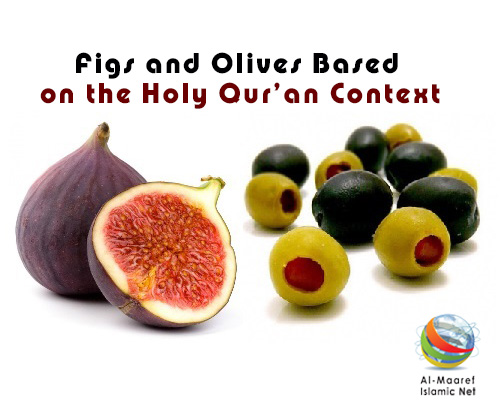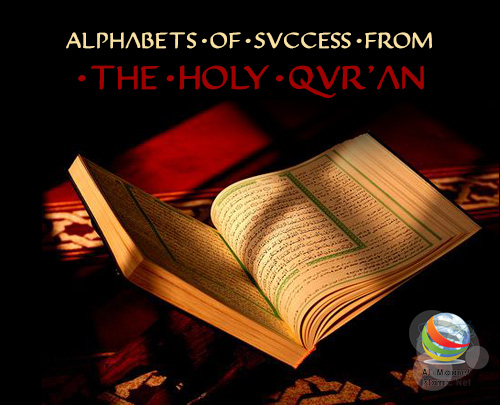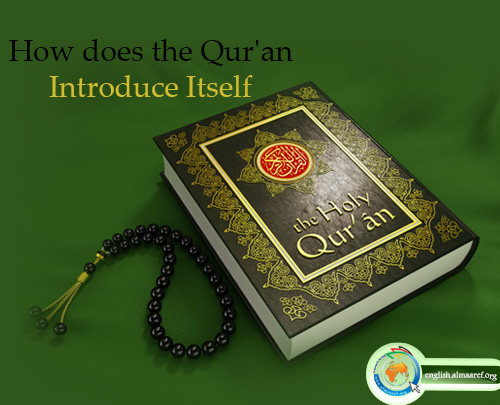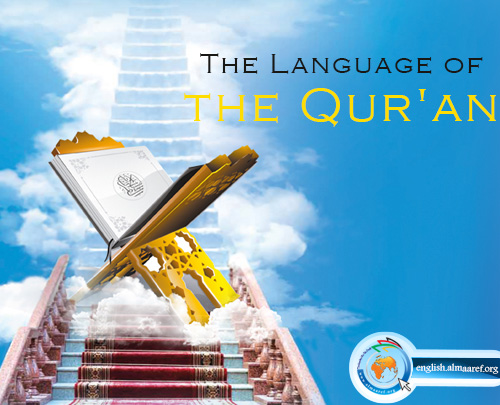One of the achievements of the age of communications is that different religious communities and traditions have come to know one another more than ever before. This has opened up new horizons for religious life and for a better understanding of religions.
Are all of the religions true and right? or, are some of them right and some of them wrong? Does every religion offer a unique way for the happiness of man or are all religions the same in this respect? Can the differences among religions be reduced to reach a comprehensive one?
One of the principal questions in this connection is the question of the essence of religion. It is believed in all religious traditions that every religion has a unique nature and essence beyond its teachings and beliefs. What is that essence? Does every religion have an essence for itself or is the essence of all religions the same? In this article we try to set forth some brief points in this regard in the light of the Holy Qur’an.
1. At the beginning a distinction needs to be made between the “essence” of religion and its “innateness”. The two are different and must not be confused. From the viewpoint of those who divide religion into innate and accidental parts, innateness refers to the major teachings and the
important aims of religion, which do not vary across time and across cultures and to which man is called under all circumstances. However, the “essence” of religion is what constitutes the basis and the foundation of all religious teachings and gives sense to them. It is the soul in the body of religious teachings that helps man to achieve his goals.
2. Before any discussion of the essence of religion, there is a question that deserves to be asked:
How can the essence of religion be known? Is it possible to know the essence of religion through mere philosophical reflection? Can one do so through experience and divine wisdom?
The fact is that there is no way to know the essence of a religion except through the religion itself and the phenomena that relate to it. For as it was said, the essence of religion is the basis of its instructions and the spirit of its teachings. How can it be possible to understand the essence of a religion only through personal reflection or reasoning and without considering the religion itself? The use of reasoning and experience is necessary for the understanding of the religion; however, it is by no means enough to rely only on wisdom and intuition and to ignore the religion itself. The current paper proceeds now to enumerate some of the criteria for the understanding of the essence of religion.
A. Reliance on Religious Texts
The exploration and analysis of the texts of a religion can be a proper method for gaining insights into its essence. All chapters and sections as well as the vocabulary of religious texts are formed in line with their desired fundamental goals. The final message of a religious text is in a way the essence of that religion, which the text tries to elaborate.
B. The Structure of Religious Teachings
All religions have a kind of structure and system of teachings that is the result of the interrelationship of their teachings. The nature of the interrelationship between the different parts of the system of religious teachings, their cause-effect relations and their hierarchy can be used for the understanding of religion from two viewpoints. The first is the general structure of the system of religious teachings. It can be oriented to the present world or the next world. It can be morally oriented or have an orientation toward sacred laws. For example, the teachings of present-day Christianity show that it is a morally oriented religion for the Hereafter. On the other hand, the present-day Judaism is a worldly and law-oriented religion. Islam, according to the system of its teachings, is a comprehensive religion which attends both to the present world and to the next world. It values both morality and the sacred law.
C. Attention to Cultural Factors
In religious societies religion is the most effective factor in the formation and development of social cultures and traditions. All manifestations of culture, including literature, poetry, architecture, fine arts, traditions and social norms are influenced by religious thoughts and beliefs. It is because of this very fact that whatever receives more attention in religion and becomes the blueprint of its teachings has also a stronger manifestation and presence in the cultural practices of religious people. This then becomes a way for the understanding of the basic elements of religion, including the most fundamental element, that is the essence of religion.
3. From among the ways suggested for the understanding of religion, the most important is the use of religious texts. For the formation of the system of religious teachings and events depends on the themes of religious texts. This situation renders the use of religious texts conditional. The use of religious text is conditional upon the fact that they should not be altered or be subject to additions and omissions during the course of history. Otherwise, such changes not only render the religious texts useless, but also make the understanding of the system of religious teachings and practices impossible. In this paper we, therefore, rely only on the Holy Qur’an for the investigation of the essence of religion. The Holy Qur’an presents a concise, yet comprehensive, view of the teachings of Prophets, which is in fact the sacred texts of religions. Moreover, based on conclusive evidence and definite proofs, the Holy Qur’an is the only religious text which has remained intact and which has not been subject to changes and alterations.
4. There are different views on the essence of religion. The bulk of these views can be categorized into two major viewpoints:
1. Human-oriented approaches and
2. Effect-oriented approaches.
We proceed to explain each of these approaches in brief.
The Human-oriented Approaches
The common ground for human-oriented approaches to religion is that all of them define the essence of religion as a human phenomenon, even though they disagree on its token and evidence. Some regard the essence of religion as a kind of emotion, while others regard it as a belief. The third group regard it as a sort of affection and attachment, and the fourth group view it as a kind of Gnostic experience. One of these views is that of Shelaier Makher that sees the essence of religion as, ‘a feeling of absolute dependence’. Another view is that of Halfding which regards the essence of religion as, ‘the very belief in the presence and continuity of beliefs in the world’.1
Similar to these views, we can mention the views of Otto and Stis. The former regards the essence of religion as paradisiacal feeling and the latter sees it as Gnostic experiences.2
An Arab writer states: “There are undoubtedly some beliefs which can be considered as the essence of religion and which play an important role in religion. Among these basic beliefs are belief in the unique God, belief in prophets and belief in the next world or the Hereafter. These beliefs are so important and fundamental that if one does not accept them as true, he cannot be considered religious. If we study religions comparatively, we shall discover that all of them believe in a supreme and sacred power. All religions believe that this supreme and sacred power communicates with mankind directly and assigns tasks to him. Similarly, all religions speak of the next world or the Hereafter and they do not see death as the end of man’s life.3
In relation to these views on the essence of religion, two points must be taken into consideration. First, these views are methodologically invalid because they are not documented in the ways mentioned for the understanding of the foundations of religion. Second, they are not acceptable in the view of the Qur’an, even though they may have originated from an investigation of the system of religious beliefs. This is because they are based on an assumption, that is not compatible with the logic of the Holy Qur’an. That is to say, they are based on a human-oriented view of religion.
These approaches are based on the presupposition that religion is a human phenomenon and that it has its origins in man. With this presupposition, such approaches seek to discover which human elements in religion are the basic and the essential elements. Some have ended up to emphasize beliefs, others feelings, and so on. Nevertheless, according to the Holy Qur’an, religion is a divine phenomenon and all religions attributed to the Prophets is the result of Divine Inspiration:
“Surely we have revealed to you as We revealed to Nuh, and the prophets after him, and We revealed to Ibrahim and Ismail and Ishaq and Yaqoob and the Tribes, and Isa nad Ayub and Haroun and Sulaiman and We gave Dawood the Psalms…”4.
The Effect-oriented Approaches
These approaches to religion define the essence of religion based on the main effect of religion on human beings. Therefore, contrary to human-oriented approaches, the assumption of these approaches is that the nature of religion is necessarily different from that of the human being and it is a separate entity from the human being. Its goal is to influence mankind and to direct his life. One such approach is John Hick’s approach. He believes that the essence of religion is to revolutionize human personality and that religious teachings are the core of religion.5
There is a similar approach which holds a view that the essence of religion that has been the subject of investigation for centuries is the evolution of man in his relation to the values of a happy life.6 Another view holds that the most important teaching of a religion is obedience and this main teaching is the essence of the religion (Ibid.). This last view is not subject to the criticisms leveled at the previous views. However, the following questions can be raised about it:
Do religious teachings revolutionize man’s approach to life or do they teach him to be the follower not the God in his life? Is the effect of religion the result of the truth in its teachings or is it not related to the contents of religion? It is clear that any influence by the teachings of a religion stems from the contents and themes expressed in them. So, the basic influential element in a religion is the type of thinking and the ideology expressed in its teachings. It is therefore wise to look for the essence of religion in those thoughts and ideologies not in their external influences. To conclude, the approaches mentioned so far have confused the whole and the part and have mixed up the cause and the effect. In trying to delineate the essence of religion, they have misplaced these parts and causes and effects.
What can be inferred from the Holy Qur’an is that the essence of religion in Islam as well as in other religions such as Judaism and Christianity is the same. It is the only fact of the unity of God or the existence of a unique God in the world of creation and Divine Legislation. From the viewpoint of the Holy Qur’an, the teachings of all Prophets can be summarized in one sentence: “The Creator of the world and the human kind is only one and no more.” Prophets have all attempted to replace polytheistic thinking with monotheistic thinking and behavior. In order to confirm this fact, one can look at the Holy Qur’an from different angles and perspectives and can quote some groups of verses from it.
The First Perspective
The first group of verses in the Holy Qur’an is one that expresses the manifestations of the power of God, His wisdom, and His Divinity to require mankind to reflect on the World of Creation and the World of Divine Legislation. Such verses constitute about two thirds of the Holy Qur’an and can be classified into the following groups:
1. Some Qur’anic verses talk about natural phenomena such as the sky, the earth, stars, plants, the coming of day and night, the creation of man, and so on….
“Most surely in the creation of the heavens and the earth and the alternation of the night and the day, and the ships that run in the sea with that which profits men, and the water that Allah sends down from the cloud, then gives life with it to the earth after its death and spreads in it all kinds of animals, and the changing of the winds and the clouds made subservient between the heaven and the earth, there are signs for a people who understand”.7
“Say: O Allah, master of the Kingdom! Thou givest the kingdom to whomsoever thou pleasest and takest away the kingdom from whomsoever thou pleasest, and thou exaltest whom thou pleasest and absest whom thou pleasest; in Thine hand is the good, Surely, thou hast power over all things. Thou makest the night to pass into the day and thou makes the day to pass into the night, and thou bringest forth the living from the dead and thou bringest forth the dead from the living and Thou givest sustenance to whom Thou pleasest without measure.”8
“Do they not look up to heaven above them, how We have made it and adorned it and it has no gaps?
And the earth, We have made it plain and cast in it mountains and We have made to grow therein of all beautiful kinds, to give sight as a reminder to every servant who turns frequently to Allah and We send down from the cloud water abounding in good, and We cause to grow thereby gardens and the grain that is reaped, And the tall palm trees having clusters closely set one above another….”9
2. Some verses reveal the role of God in the formation of history and in man’s failures and successes.
﴾But when they neglected that with which they had been admonished, We opened for them the doors of all things, until when they rejoiced in what they were given We seized them suddenly; then lo! They were in utter despair. So the roots of the people who were unjust were cut off; and all praise is due to Allah, the Lord of the worlds.﴿10
﴾Indeed there was a sign for you in the two hosts which met together in the encounter, one party fighting in the way of Allah and the other unbelieving, whom they saw twice as many as themselves with the sight of the eye; and Allah strengthens with His aid whom He pleases; most surely, there is a lesson in this for those who have sight﴿.11
﴾Have they not traveled in the earth and seen how was the end of those who were before them?
Mightier than these were in strength and in fortifications in the land, but Allah destroyed them for their sins; and there was not for them any defender against Allah﴿12
﴾This is a chapter which We have revealed and made obligatory and in which We have revealed clear communications that you may be mindful﴿13
﴾Allah indeed has sanctioned for you the expiation of your oaths and Allah is your protector, and He is the Knowing, the Wise﴿14
﴾….Allah does not desire to put on you any difficulty, but He wishes to purify you and that He may complete his favor on you, so that you may be grateful﴿.15
3. Some verses prove God’s supreme authority in his ordinances and bounds. These verses emphasize the fact that God’s rules and ordinances are only instruments to help man and endow him with God’s blessings and mercy.
4. Some verses attribute to God such qualities as guidance and misguidance or attention and abandonment to warn mankind, that man is all the time governed by God’s power.
﴾Say: Is there any of your associates who guides to the truth? Say, Allah guides you to the truth….﴿.16
﴾And Allah strengthens with His aid whom He pleases, most surely there is a lesson in this for those who have sight.﴿17
﴾If Allah assists you, then there is none that can overcome you, and if He forsakes you, who is there then that can assist you after Him?﴿18
These collections of verses and other similar ones attribute to the power of God any action and reaction or any cause and effect in the World of Creation and Divine Law. They all have a common goal: To make God present in the realms of man’s thoughts, feelings and behavior, and to block all polytheistic belongings in these realms.
The Second Perspective
The second perspective for the consideration of the Holy Qur’an is to study the verses that are related to the history of Prophets. These verses narrate how Prophets called mankind, what attempts they did, and what preoccupations they had in performing their duties. Here again there is a common message, that is calling mankind to believe in the unity of God and to be obedient to him.
﴾And We did not send before you any apostle but We revealed to him that there is no God but Me, therefore serve Me﴿19
﴾Certainly We sent Nuh to his people, so he said, O my people serve Allah, you have no god other than Him, surely I fear for you the chastisement of a grievous day﴿20
﴾And to Ad We sent their brother Hud. He said: O my people! Serve Allah, you have no god other than Him, will you not then guard against evil?﴿21
﴾And when Ibrahim said to his father and his people: Surely I am clear of what you worship, Save Him who created me, for surely He will guide me﴿22
﴾They have taken their doctors of law and their monks for lords beside Allah, and also the Messiah son of Marium and they were enjoined that they should serve one God only, there is no God but He, far from his glory be what they set up with Him﴿23
Based on these verses, the teachings of Prophets which are the foundation of all Divine Religions revolve one point, that is the introduction of monotheism to man’s life. It may be assumed that the message of Prophets has been man’s following and obeying not the communication of monotheism to him. This is what we have already rejected. The point is that Prophets did not come to teach obedience to mankind, because their people were already obedient to natural powers, stars and idols. Prophets came to make monotheism the center of all obedience and to direct man’s obedience to the direction of God. This is why in the verses of the Qur’an, the emphasis is on God not on obeying God. In the verses referred to here, the unity of God is always emphasized either before or after call for obedience.
﴾And We did not send before you any apostle but We revealed to him that there is no God but Me, therefore serve Me﴿24
﴾Oh my people serve Allah, you have no God other than Him﴿25
As a result, the essence and the nature of the teachings of Prophets and their major preoccupation has been the delivery of the message of God’s unity to mankind. This fact has been reported not only in the Holy Qur’an but also in the sacred texts of Judaism and Christianity which are about the teachings of Prophets. For example, the holy book of Judaism, Torah, states: “ I am Jew , your Lord. I brought you from the land of Egypt and you have no God except me and do not look for one high in the sky or low on the earth or deep in the water﴿26 In other words, God’s first advice to Moses and to the Jews through Moses is that there is only one God. He only should be followed, but not the idols.
Similar pieces of advice can be seen in the teachings of Christ: “Hausa was asked which advice was the first advice and he said in reply: O! Israel, list to the first advice; your God is only one and so love your God wholeheartedly, with all power and all intention; this is the first advice.27“
and the eternal life is to know you and to know that you are the unique true God….”28
The Third Perspective
The third perspective on the Holy Qur’an is that it summons the People of the Book to the common point and the common foundation of all Divine Religions:
﴾Say O followers of the Book! Come to an equitable proposition between us and you that we shall not serve any but Allah and that we shall not associate aught with Him and that some of us shall not take others for Lords besides Allah; but if they turn back, then say bear witness that we are Muslims﴿29
In this holy verse God mentions monotheism in deeds as the common ground for the followers of all Divine Religions. Equality among followers of different religions in terms of monotheism in deeds can have either of the following two meanings:
1. That monotheism is believed by all of them;
2. That monotheism exists in the religious books and texts of all.
If the first meaning is intended, the Qur’an’s call for monotheism indicates the point that the Jews and Christians do not adhere to the consequences of monotheism, or rather they practice polytheism. If the second meaning is intended, the Qur’an’s call means that the deeds and practices of the Jews and Christians are not based on their religious texts. It is perhaps because of the fact that they have not understood their religious texts adequately or that they have become polytheists based on their sensual desires.
No matter which interpretation is correct it can be confirmed that monotheism in the realm of beliefs and in the realm of religious texts is an undeniable fact. It should be added that common values are not restricted to monotheism and there are more common grounds in other beliefs and values. So, the fact that the Holy Qur’an calls for monotheism in spite of the existence of other common values and beliefs shows that monotheism has an important and unique value in the teachings of the Prophets and the deeds of their followers.
The Fourth Perspective
Finally the third angle of vision in the use of the Qur’an for the understanding of the essence of religion is the linguistic perspective. As Isotesu has also mentioned in his book God and Man in the Holy Qur’an, “the system of vocabulary and the structure of themes in the Holy Qur’an reflect its ideology”. This ideology is God-oriented and all other key concepts such as faith, disbelief, hypocrisy, guidance, aberration, spiritual reward, punishment, heaven, hell and the like owe their meaning to that central concept because all of these concepts either express God’s action or God’s reaction.
We should add to the point above the fact that words relating to God, whether they be Allah or other modifying names such as the Lord, the Compassionate, the Merciful, the Creator, the Benefactor, etc., have a highest frequency in the Holy Qur’an. Considering this point, one can conclude that the gist and the essence of divine inspiration and the spirit of religious teachings and values in Islam as well as in other divine Religions is monotheism. According to the Holy Qur’an the same is true about the concept of Allah and its related words in the contents and the vocabulary of the teachings of other prophets. Therefore, God sees the correct reflection of monotheism as the surrender of man to it, and He regards being a Muslim as the desired goal of Prophets and the prominent people.
“Ibrahim enjoined this (creed) on his sons and so did Yaqoub. O my sons! Surely Allah has chosen for you this faith, therefore die not unless you are Muslims. Nay! Were you witness when death visited Yaqoub, when he said to his sons what will you serve after me? They said we serve your God and the God of your fathers Ibrahim and Ismail and Ishaq, the One God and to him do we submit”30
At the end, we quote some of Allamah Tabataba’i’s words which summarize the main points of this paper:
What is revealed to me by religion is monotheism and what is implied from it, including religious, moral and practical insights. In short, whatever is revealed to me is all rooted in monotheism. This is the very sense of the verse owing to the use of the word ‘innama’.31
One of the most important advantages of this religion is the interrelationship and coherence of its parts so that it does constitute a complete unity. That is to say, the monotheistic spirit presides and spreads over the moral traits approved by this religion. Therefore, all parts of the religion end up with monotheism upon analysis. If monotheism had descended, it would have been the good traits and deeds and if the good traits and deeds had ascended, they would have been monotheism. Good words go up to Him and good deeds take them up to him.32
6. What are the effects of the unique and common essence of religions? If all Divine Religions have the same essence which is monotheism, what conceptual and practical influences can this have in the life of mankind?
An immediate consequence of the common essence of all religions is their reconciliation, causing better familiarity and friendship between their followers and the creation of a common ground for reasoning that paves the way for dialogue among them. Some believe that there is no such thing as a common and comprehensive ground for reasoning since reasoning depends on conditions and backgrounds and is historically determined.
If we accept the point that religions with different traditions have the same essence and core, and if we accept that all values, social traditions and the different manifestations of culture are influenced by this unique essence, we can then conclude that different religious traditions can have the same reasoning. If a common ground for reasoning does not exist nowadays, it is because in many religious traditions irreligiosity plays a major primary role. Their alienation is the result of the distance of their culture from their religion. However, in the past when social life was primarily influenced by religious values and beliefs, the dialogue between different religious traditions clearly indicated the existence of common reasoning.
1- Peterson and Husker, 1999, Wisdom and Religious Beliefs, translated by A. Naraqi and E. Sultani; Also see Iran newspaper, 16/ 12/ 1378 ‘if you want to define religion’
2- Legenhausen, Muhammad, Islam and Religious Plurality, p. 20
3- Abtahi, S.M.A., Dialogue with Christian Thinker Cross Salim Bestres, p. 29
4- 4:163-164
5- Peterson and Husker, 1999, Wisdom and Religious Beliefs, p. 408
6- A. Soroush, More Than Ideaology, pp. 371-72
7- 2:164
8- 3: 26-27
9- 50:6-10
10- 6: 44-45
11- 3: 13
12- 40: 21
13- 24: 1
14- 66: 2
15- 5:6
16- 10:35
17- 3:13
18- 3:160
19- 21:25
20- 7: 59
21- 7: 65
22- 43:26-27
23- 9:31
24- 21:25
25- 7:59
26- Torah, section 20
27- The Bible, Mark, section 12
28- The Bible, John, Section 17
29- 3: 64
30- 2:132-133
31- Tabataba’i, al-Mizan, vol. 14, p. 331.
32- Ibid., vol. 4, p.109.




















